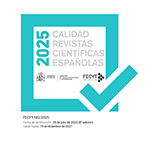Dangerous intruder or beneficial influence? The role of the "Institut de Paléontologie" Humaine in the development of prehistoric archaeology in Spain (1900-1936)
Abstract
In this paper I examine the role of international scholars in the making of prehistoric research in Spain. I focus on the activities of the Institut de Paléontologie Humaine (IPH), created in Paris in 1910. In the years immediately preceding the First World War, two IPH professors, the French Henri Breuil and the German Hugo Obermaier, did extensive research in the prehistoric archaeological sites and the decorated caves of the Iberian Peninsula. Specialists from all over Europe and the USA travelled to Spain to collaborate with them, and the results of the their work were presented internationally. Nevertheless, the professional exchange with their Spanish counterparts soon became fraught with scientific disputes and personal quarrels, when some Spanish scholars accused them of seizing the relics of Spain’s national past, describing them as agents of scientific colonialism. Taking this case as reference, I set out to overcome the (false) dichotomy between nationalism and internationalism in the writing of history of archaeology and I seek to explore the influence of the nationalist paradigm on the historiography of prehistoric archaeology in Spain.Downloads
##submission.format##
Licenza
La revista Complutum, para fomentar el intercambio global del conocimiento, facilita el acceso sin restricciones a sus contenidos desde el momento de su publicación en la presente edición electrónica, y por eso es una revista de acceso abierto. Los originales publicados en esta revista son propiedad de la Universidad Complutense de Madrid y es obligatorio citar su procedencia en cualquier reproducción total o parcial. Todos los contenidos se distribuyen bajo una licencia de uso y distribución Creative Commons Reconocimiento 4.0 (CC BY 4.0). Esta circunstancia ha de hacerse constar expresamente de esta forma cuando sea necesario. Puede consultar la versión informativa y el texto legal de la licencia.










